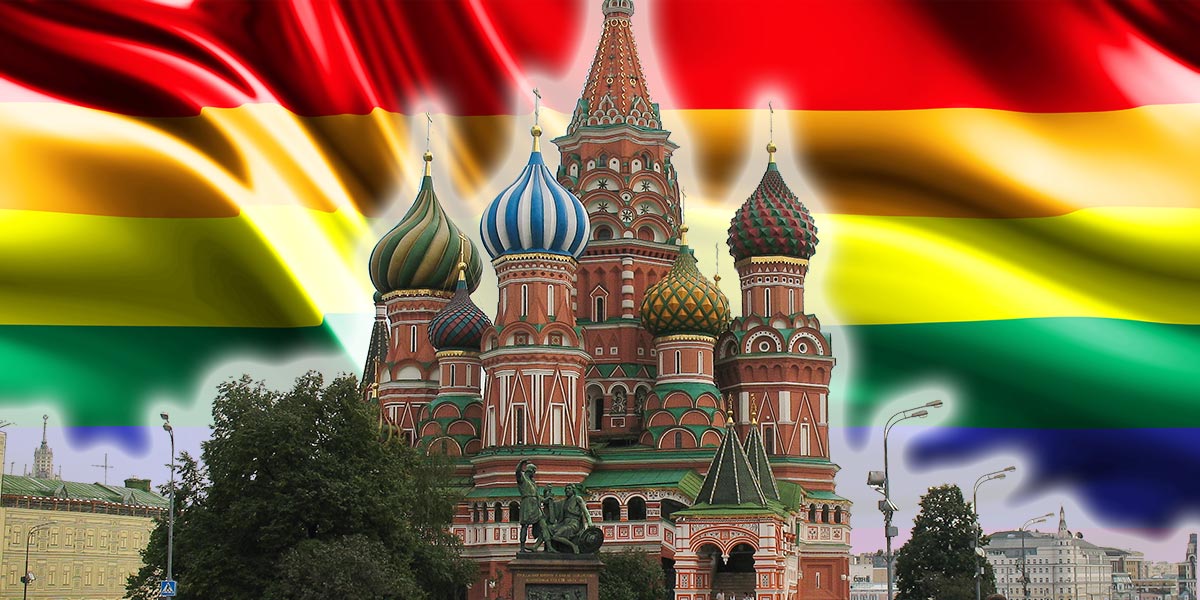Russia: Bid to define LGBTI+ activism as an “extremist” movement

The government of Russia is attempting to legally label efforts to secure LGBTI+ rights as “extremist,” a move that could lead to further clamping down on LGBTI+ activism in the country.
According to Amnesty International, Russia’s Ministry of Justice has filed a petition to the Supreme Court, seeking to officially recognise the “international public LGBT movement” as extremist, ultimately aiming to ban its activities within the country.
The scheduled hearing for the Ministry of Justice’s petition is on November 30, and it is expected to take place behind closed doors.
Severe Legal Consequences for the LGBTI+ Community
The classification of an organisation as “extremist” in Russia carries severe legal repercussions. The organiser of such activities may face imprisonment of up to 10 years under Article 282.2 of the Criminal Code.
Additionally, participants in these activities could be held criminally liable, facing prison sentences ranging from two to six years under the same article.
Marie Struthers, Director for Eastern Europe and Central Asia at Amnesty International, characterised the government’s move as “deeply cynical.”
She argued that this effort aims at “dehumanising and persecuting the entire LGBTI+ community,” potentially subjecting any LGBTI+ person in Russia to arbitrary measures from the authorities.
Criminalising LGBTI+ Activism
If implemented, the proposed measure could criminalise any action in defence of LGBTI+ rights, turning them into offences deemed extremist by the state.
“Individuals could be thrown in jail on baseless charges of extremism if the state simply deems them to be part of a so-called ‘international public LGBTI movement’,” said Struthers, adding “Even symbols such as the rainbow flag could be proscribed for being extremist.”
Being on the “extremist” list could result in a ban on the organisation’s symbols, and anyone displaying these symbols could face administrative arrest of up to 15 days under Article 20.3 of the Code of Administrative Offenses.
Individuals under investigation or prosecution for involvement in “extremist” activities often experience blocked bank accounts, employment restrictions, and limitations on other rights, including being barred from standing in elections for varying periods.
Struthers emphasised the harsh impact this move would have on countless LGBTI+ people in Russia, subjecting them to a life of silence, fear, humiliation, and potential imprisonment.
Amnesty International called for an immediate withdrawal of the Ministry of Justice’s petition and the repeal of all homophobic laws. Additionally, affected individuals should receive fair compensation.
Challenges Faced by the LGBTI+ Community in Russia
Over the past decade, life for LGBTI+ people in Russia has become increasingly restricted. In 2013, President Vladimir Putin signed a federal law prohibiting the promotion of “non-traditional” sexual relationships to minors.
This law has been used to suppress LGBTI+ Pride events and limit positive depictions of LGBTI+ individuals. Last year, Russian legislators broadened the 2013 law to include a ban on LGBTI+ public information or activities to all Russians, not just children.
Also in 2022, a court in Saint Petersburg declared social media posts “creating an appearance that [being transgender] is socially acceptable” illegal in Russia.
Leave a Reply